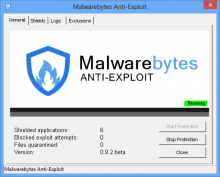Japanese police bust poker-playing IT boss for Android malware
Police in the Chiba Prefectural zone of Japan have arrested nine people suspected of making nearly $4m by distributing malware that harvested mobile user's contact information and using it for a fake dating website.
The arrests came after a joint operation between the police and Symantec, and the security company reports that the possible ringleader of the group is Masaaki Kagawa, president of IT firm Koei Planning and a semi-professional poker player who has netted over $1.5m in winnings from tournament play over in the last six years.













































































